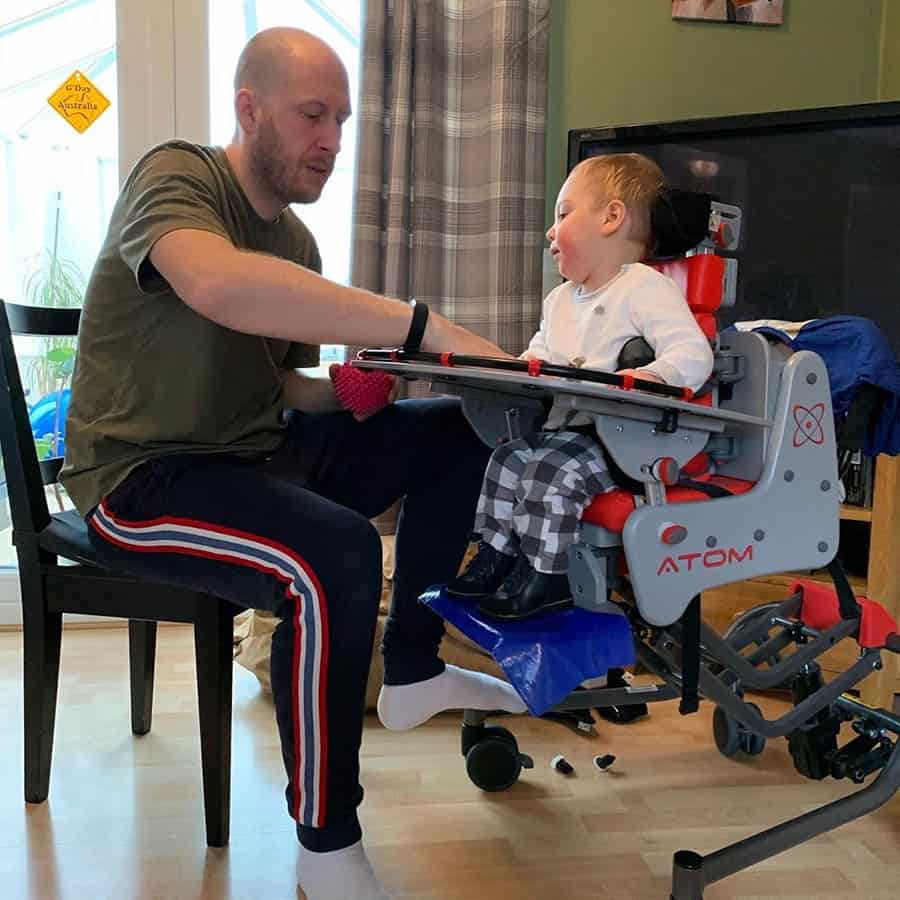Guest article: Postural management – A clinical priority

The difference a robust postural management plan can make to a child’s comfort, function and health is immeasurable. In this article, Richard Harvey, National Clinical Training Manager from Sheffield-based postural specialist Jiraffe, explains the need to prioritise such care.
Robust postural management enables as much independence as possible and can allow a child to access education and interact with their peers.
Not managing someone’s posture, when they cannot do it for themselves, can have detrimental effect on their health. The formation of contractures can occur, which can cause a loss of range of motion in their joints. If a person begins to lose these abilities, then their capability to be mobile also decreases.
Over time, skeletal deformities can develop and this can lead to asymmetrical postures. This, in turn, can cause pressure-related injuries and compression of internal organs, causing bodily functions to become less efficient. All of this can have a knock-on effect, leading to a multitude of physical health problems and a plethora of secondary complications, which is why 24-hour postural care is so important for children and adults with complex disabilities.
The foundation of postural management is control over a 24-hour period. A therapy team in the 1980s, who were working in a residential home, realised that their current regime was not effective in avoiding or slowing the development of secondary complications related to posture.
The typical therapeutic interventions including passive stretches and orthotic splints had little effect on correcting these problems. It was found that managing a person’s posture whilst in bed, sitting and where possible, standing, had the most long-lasting positive impact. Instead of looking to fix/cure these issues, a new approach of trying to manage and prevent damage occurring was pioneered.
There is a considerable amount of evidence demonstrating the negative outcomes for people with complex disabilities when they don’t have appropriate management.
No matter the current state of someone’s posture, without action it is extremely likely to worsen over time. It has become increasingly clear that ‘hands on therapy’ only, as a way on intervention, is not enough to disrupt the destructive capabilities of gravity.
The three main aims of postural management are: maximise function, minimise damage and to reduce energy expenditure.
The more immobile a child or adult is, the more at risk they are of developing damage and further complications. This lack of movement really is the root of most, if not all, issues relating to postural management.
It is safe to say that the past four months have been a challenge for everyone. We have all had to drastically adapt our lives, jobs and the way we interact with one another. Many non-emergency NHS services have been placed on standby and healthcare professionals re-deployed into alternative services to assist with the COVID-19 response.
We are now beginning to see the easing of restrictions around the country and the reopening of services to the public.
On June 3, the clinical Directors of NHS England issued a document to instruct and guide NHS Trusts on how to begin the re-integration of their services: ‘COVID-19 restoration of community health services for children and young people: second phase of NHS response’.
Jiraffe understands that postural management is a clinical priority for the health and wellbeing of children with disabilities, launching new and innovative services, such as Emergency Posture Provision to ensure all children have timely access to vital postural support equipment.
For more information on Jiraffe, visit www.jiraffe.org.uk or call 0114 285 3376.


